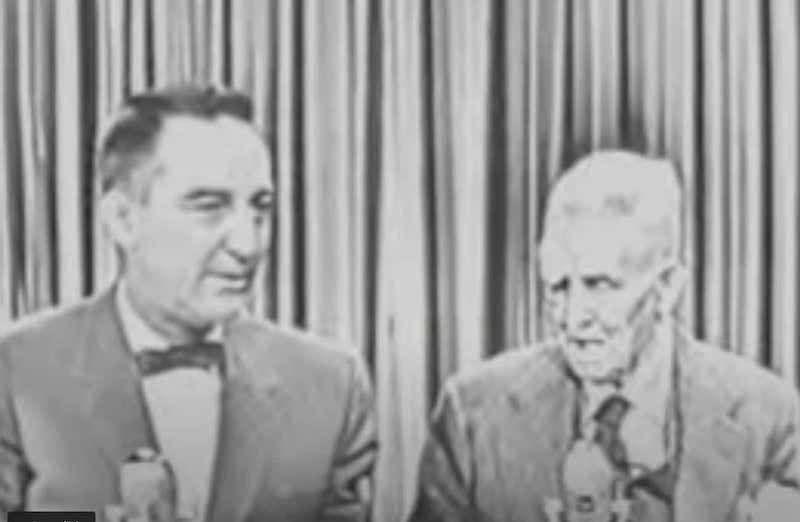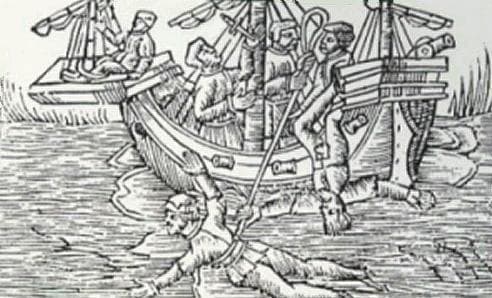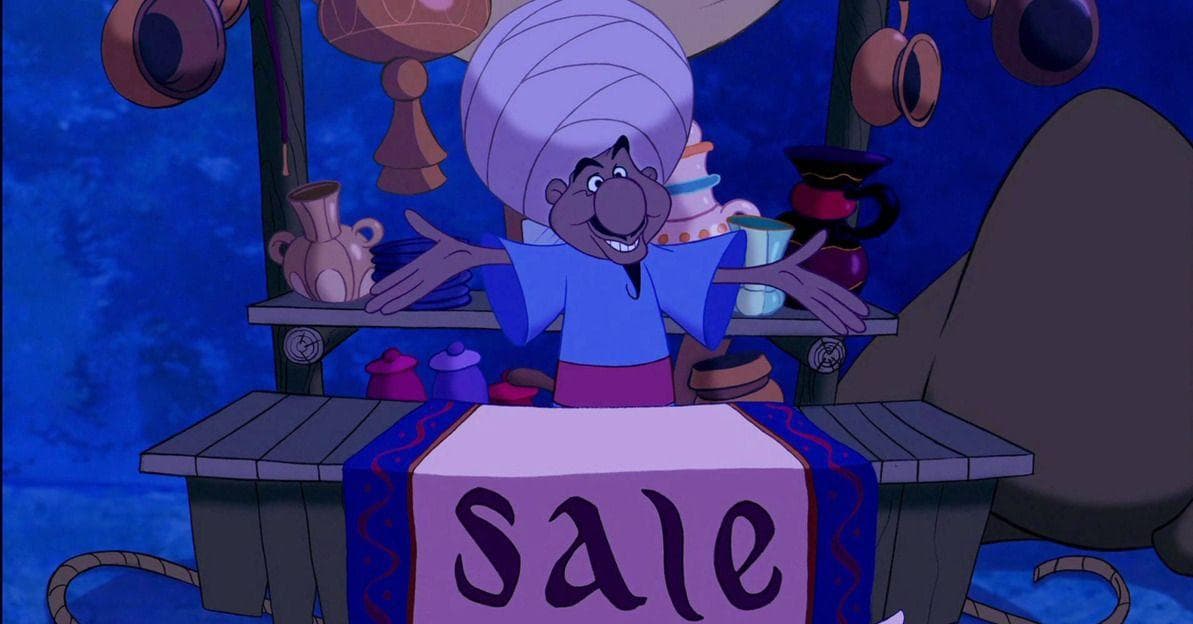
James Stockdale Wounded Himself To Avoid Being Used In Anti-American Propaganda
[ranking: 1]
American Admiral James Stockdale spent seven years as a POW in the infamous Hanoi Hilton, where he endured repeated abuse that involved being locked in leg irons and kept in solitary confinement. In 1969, after nearly four years as a prisoner of war, Stockdale learned his Viet Cong (VC) captors were planning to use him in propaganda to prove POWs did not experience mistreatment.
Rather than serve the VC's propaganda machine, Stockdale used a wooden stool and razor to beat up his face. This way, his adversaries could not portray him as an "unharmed prisoner." Stockdale's actions and intense patriotism reportedly convinced the VC to treat POWs more humanely.
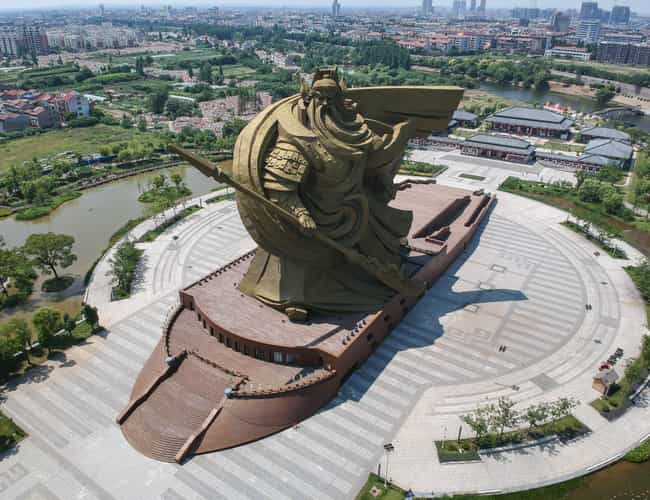
General Guan Yu Played Chess During An Operation With No Anesthesia
[ranking: 2]
Generals do more than lead people on the battlefield; their leadership extends to moments between wars. Chinese general Guan Yu demonstrated this when he endured an operation without any anesthesia. After a poisoned arrow struck Guan Yu, a doctor advised him to undergo a procedure to remove the harmful substance. As the doctor scraped toxins off the general's bones, Guan Yu played chess.
Guan Yu led the Chinese army to multiple victories before he died around 220 CE. Many viewed the general with such high esteem that his people supposedly deified him after his death.
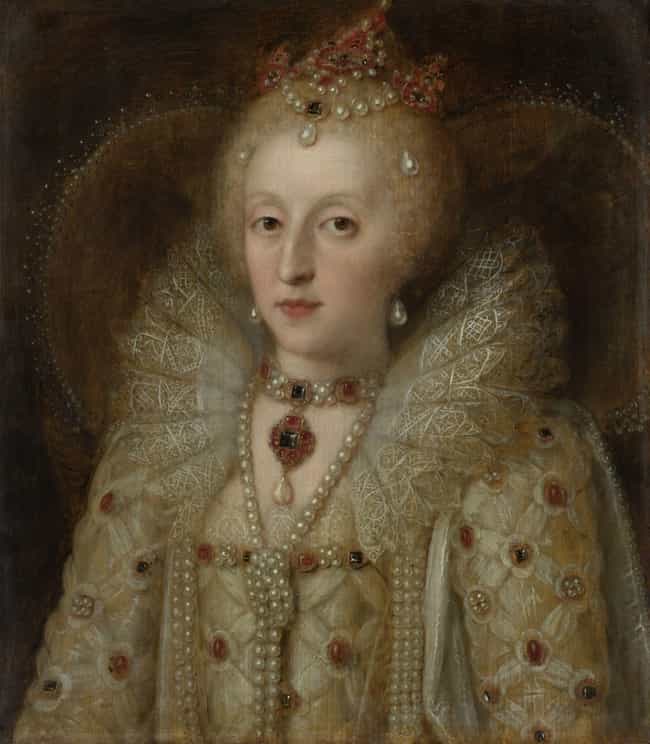
Queen Elizabeth I Rejected Gender Norms And Vowed To Fight For England
[ranking: 3]
Queen Elizabeth I of England was a female monarch who succeeded another female monarch. She came to power in 1558, the same year John Knox published a book - The First Blast of the Trumpet Against the Monstrous Regiment of Women - that criticized the concept of women ruling.
Elizabeth knew many in England hated the idea of a female ruler. She even acknowledged that in her famous Tilbury speech, given in 1588 as Spain's armada threatened to invade. Elizabeth declared, "I know I have the body but of a weak and feeble woman, but I have the heart and stomach of a king, and of a king of England, too."
She also said, "I myself will take up arms, I myself will be your general, judge, and rewarder of every one of your virtues in the field." The English won the battle, and Elizabeth became one of the most revered rulers in history.
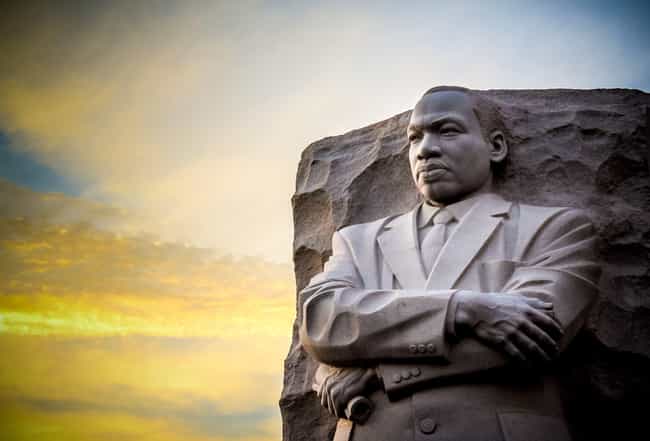
Martin Luther King Jr. Improvised 'I Have A Dream'
[ranking: 4]
In one of the most famous speeches of the 20th century, Martin Luther King Jr., declared, "I have a dream." King gave the speech in 1963 during the March on Washington, but most people are unaware that King improvised the famous line.
After MLK spent several minutes reading his prepared speech, gospel singer Mahalia Jackson, who was in the crowd, called out, "Tell 'em about the 'dream.'"
King looked up from his speech and began speaking without a script: "I have a dream that my four little children will one day live in a nation where they will not be judged by the color of their skin but by the content of their character." His inspiring words shaped the Civil Rights movement for generations.
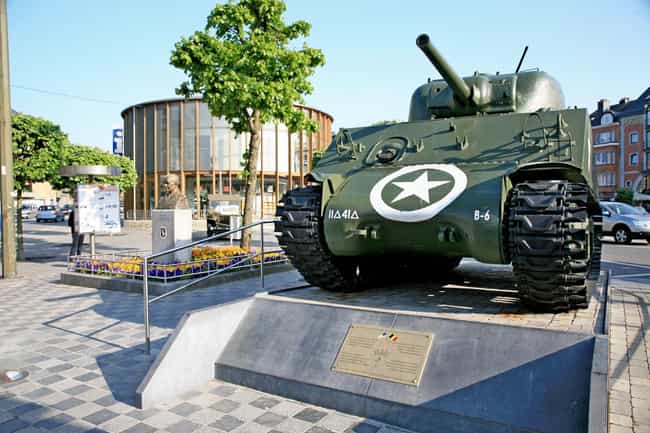
Anthony McAuliffe Confused The Germans By Saying, 'Nuts!'
[ranking: 5]
During World War II, General Anthony C. McAuliffe baffled the Germans when they demanded his surrender at Bastogne. After the German commander sent a formal letter telling the Americans to surrender, McAuliffe sent back a short reply:
December 22, 1944
To the German Commander,
N U T S !
The American Commander
The American slang confused the Germans until an American colonel reportedly said, "If you don't know what I am talking about, simply go back to your commanding officer and tell him to just plain 'Go to Hell.'"
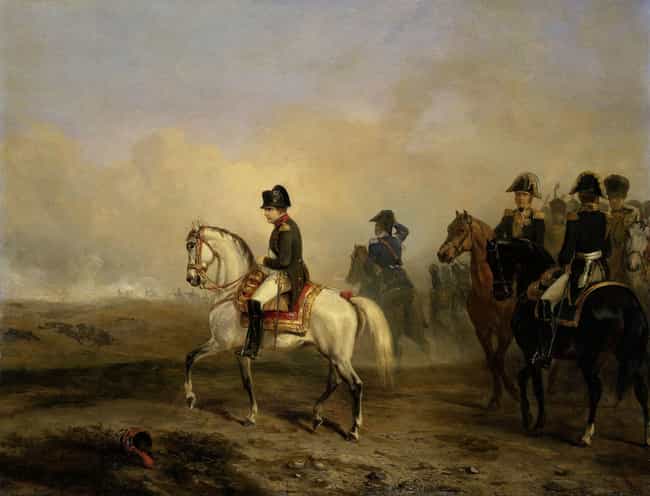
Napoleon Bonaparte Stood Before Armed Men And Dared Them To Shoot
[ranking: 6]
After conquering an empire, Napoleon Bonaparte faced a disgraceful exile on the small Mediterranean island of Elba in 1814. When he escaped and returned to France in 1815, the general reportedly subdued the opposition using words alone.
As soon as word of Napoleon's return reached France, an army flocked to his side. But Napoleon still faced a royalist regiment that blocked his return. Napoleon walked in front of the enemy, unarmed before a line of rifles. The general ripped his coat open and shouted, "If there is any man among you who would kill his emperor, here I stand!"
The stunned enemies allegedly threw down their weapons and began to shout, "Long live the Emperor!" They joined Napoleon's cause and rode with him to Waterloo.
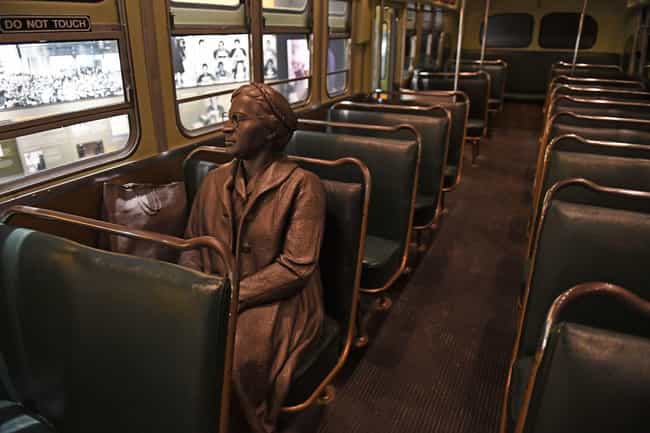
Rosa Parks Refused To Give Up Her Seat On The Bus
[ranking: 7]
Some leaders aren't generals or royalty. Sometimes they are regular people who inspire the world. This is the case for Rosa Parks, a seamstress in Montgomery, AL, who refused to give up her bus seat for white passengers in 1955.
In segregated Montgomery, many accused Parks of breaking the law. The bus driver even called the police to arrest Parks, who declared, "I don't think I should have to stand up." Parks refused, and her choice inspired the Montgomery bus boycott. She later became an important civil rights leader.
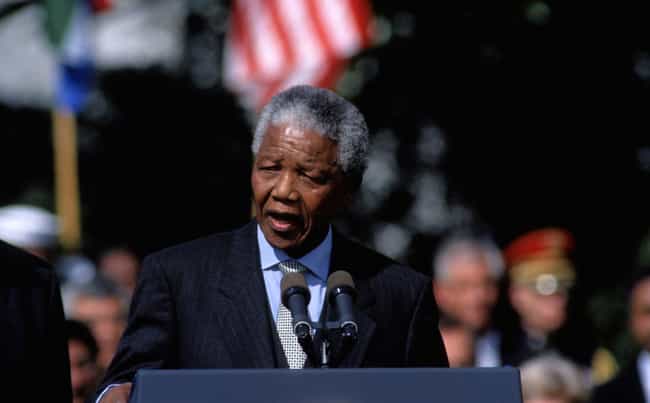
Nelson Mandela Fought Apartheid From Behind Bars
[ranking: 8]
While some inspiring leadership decisions happen in a single moment, others stretch out over years. Nelson Mandela fought against apartheid in South Africa as a young man, which landed him in prison for 27 years.
From 1962 until 1990, Mandela remained in prison. He later explained, "Prison life is about routine: each day like the one before; each week like the one before it, so that the months and years blend into each other."
After his release, Mandela continued to fight, earning the Nobel Peace Prize and becoming South Africa's first democratically elected president. His decades-long battle helped end apartheid.
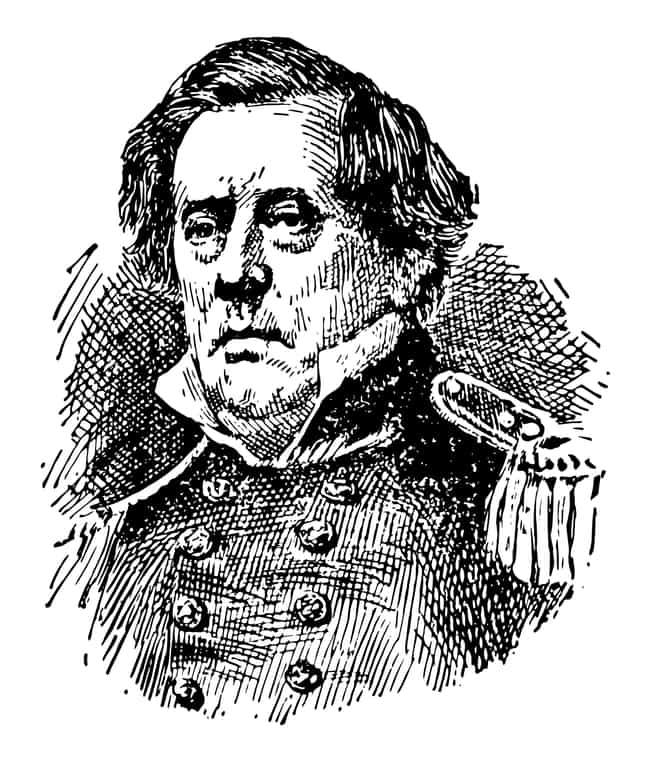
Matthew Perry Sent The Japanese Government A White Flag
[ranking: 9]
In 1853, American Commander Matthew C. Perry arrived in Japan, hoping to open diplomatic relations with the country and sign a treaty. This was during an era when Japan practiced a seclusion policy, so Perry arrived with four warships, ready to engage if necessary.
Perry decided to clarify matters by sending a white flag to the Japanese. His letter warned that if Japan refused to consider a treaty, the US would attack. To explain why he gave them a white flag, he stated, "The victory will naturally be ours." The commander promised that when the Japanese raised the flag, the Americans "would accordingly stop firing and conclude peace with you."
The gutsy move worked, and Japan agreed to a treaty with the US.
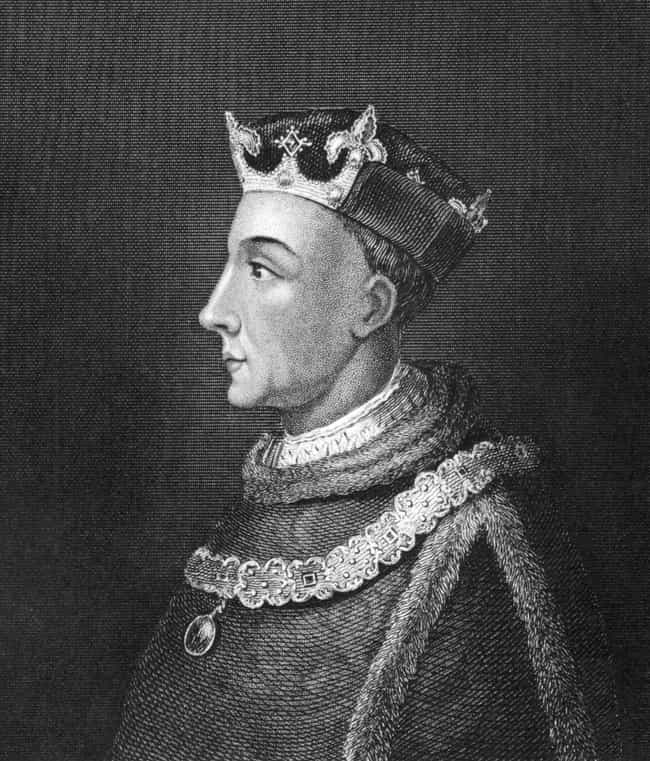
Henry V Inspired William Shakespeare's Most Celebrated Speech
[ranking: 10]
William Shakespeare turned the battle speech given by King Henry V of England before Agincourt into the famous "St. Crispin's Day Speech" in Henry V:
We few, we happy few, we band of brothers; For he to-day that sheds his blood with me Shall be my brother; be he ne'er so vile, This day shall gentle his condition; And gentlemen in England now-a-bed Shall think themselves accurs'd they were not here, And hold their manhoods cheap whiles any speaks That fought with us upon Saint Crispins day.
In 1415, Henry likely did give a battle speech that roused his troops to victory. According to multiple 15th-century texts, the king declared he would rather die on the battlefield than be taken prisoner, riding at the front of his army and risking his life to inspire his followers. And while he didn't use the exact words that Shakespeare recorded nearly 200 years later, the king won the battle.
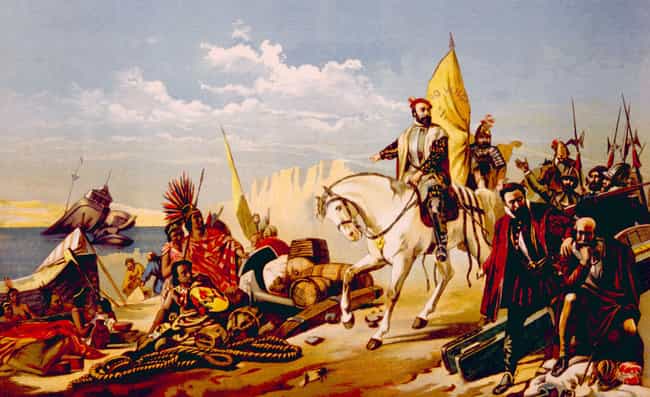
Hern??n Cort??s Sunk His Own Ships So His Men Couldn't Mutiny
[ranking: 11]
Facing an uncertain reception in Mexico and potential execution if he turned back, Spanish conquistador Hern??n Cort??s made a gutsy move in 1519. His men were on the brink of mutiny, and a group had tried to steal one of his ships to flee. To galvanize his men to advance toward the Aztec capital where Tlaxcalan warriors were waiting for them, Cort??s sunk his ships. He declared the ships unseaworthy and scuttled them to ensure his men would have to march forward.
The unconventional leadership decision allowed Cort??s and his men to reach Tenochtitl??n and conquer Montezuma's empire.
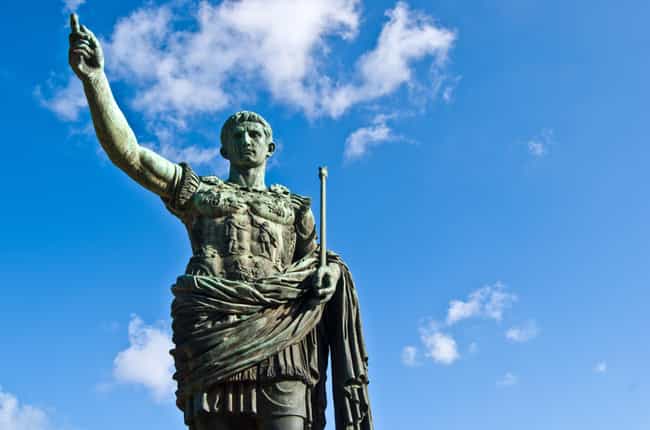
Julius Caesar Inspired The 'Great Leap Forward' That Saved The Day For The Romans
[ranking: 12]
Julius Caesar earned a reputation as a successful general before he seized power in Rome by crossing the Rubicon. But Caesar's reputation almost fell apart during the invasion of Britain in 55 BCE. When Caesar sailed with an army of 10,000 toward the Cliffs of Dover, the invasion might have failed, except for the bravery of one of Caesar's standard-bearers.
As the troops hung back on their boats, the standard-bearer, who usually stayed in a protected position, jumped forward, crying, "Leap down, soldiers, unless you wish to betray your eagle to the enemy; it shall be told that I at any rate did my duty to my country and my general."
The other troops rallied and followed, saving the invasion. While Caesar didn't personally lead the charge, he inspired the standard-bearer's patriotic zeal and bravery.
New Random Display Show all by ranking(13 items)

